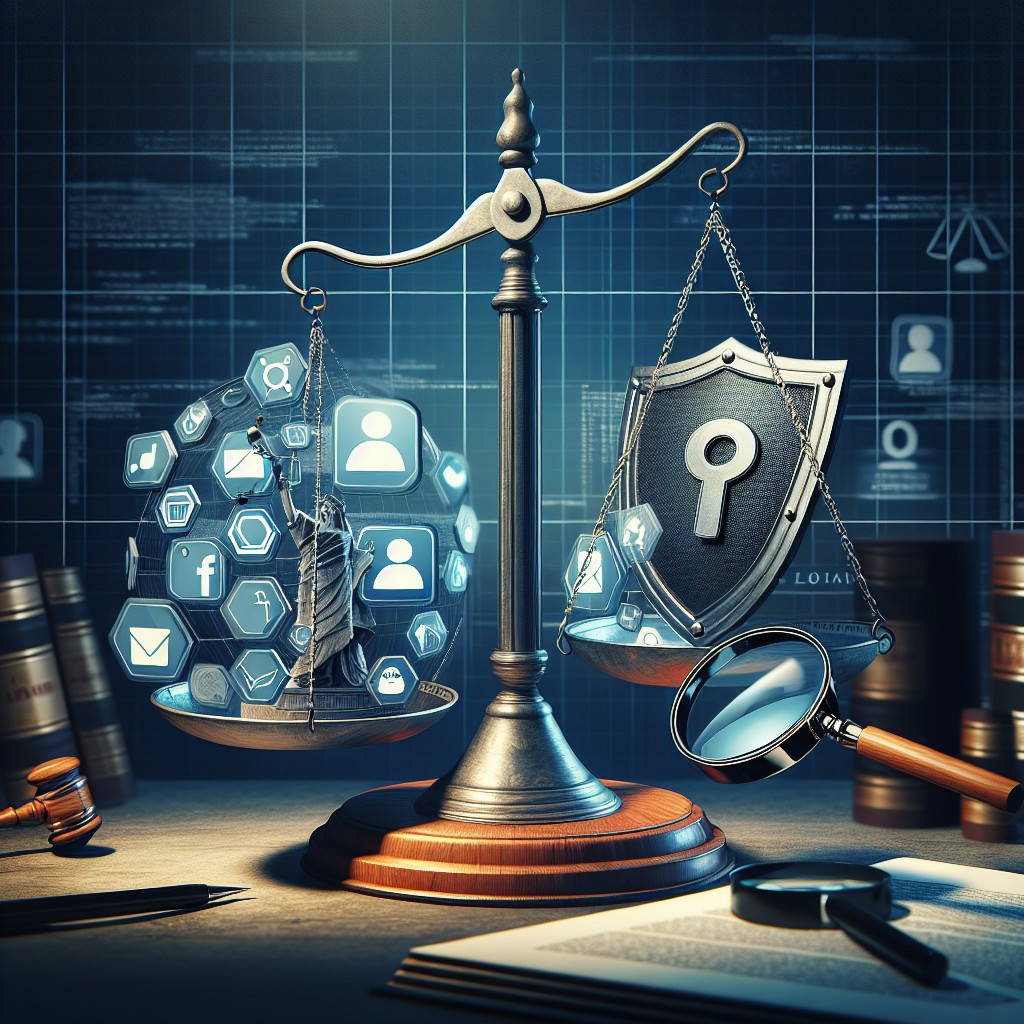In today's digital age, social media has become an integral part of our lives. It allows us to connect with friends, share our thoughts and experiences, and even build our professional networks. However, the rise of social media has also brought about various legal implications, especially when it comes to protecting our online reputation. In this article, we will explore the legal aspects of social media and provide tips on how to safeguard your online image.
One of the primary legal issues related to social media is defamation. Defamation occurs when someone makes false statements that harm the reputation of another person or entity. In the context of social media, defamatory statements can spread quickly and reach a wide audience, causing significant damage to a person's reputation. It is important to note that both individuals and businesses can be held liable for defamation on social media platforms.
To protect yourself from defamation claims on social media, it is essential to exercise caution when posting content online. Avoid making false statements about others, and ensure that the information you share is accurate and reliable. If you come across defamatory content about yourself or your business, take immediate action to have it removed. Most social media platforms have policies in place to address defamation, and you can report such content for review and potential removal.
Another legal concern associated with social media is privacy. While social media platforms provide users with the ability to share their lives with others, it is crucial to understand the privacy settings and implications of the content you post. Sharing sensitive information, such as personal details or confidential business information, can have serious legal consequences.
To protect your privacy on social media, review and adjust your privacy settings regularly. Only share personal information with trusted individuals and be mindful of the potential implications of your posts. Additionally, be cautious when accepting friend or connection requests from people you do not know personally, as they may have ulterior motives.
Intellectual property is another legal area affected by social media. Users often share photos, videos, and other media content on social media platforms without obtaining the necessary permissions or licenses. This can lead to copyright infringement claims and legal consequences.
To avoid copyright issues on social media, it is important to respect the intellectual property rights of others. Only use content that you have the legal right to share, such as your own original creations or content that is licensed for public use. If you want to share someone else's content, seek their permission and give proper attribution.
Furthermore, it is crucial to be aware of the terms and conditions of the social media platforms you use. These terms outline the rights and responsibilities of users and can help you understand what actions may be considered illegal or against the platform's policies. Ignorance of these terms does not exempt you from legal consequences.
In conclusion, social media offers numerous benefits, but it also comes with legal implications that must not be ignored. To protect your online reputation, exercise caution when posting content, be mindful of your privacy settings, respect intellectual property rights, and familiarize yourself with the terms and conditions of the platforms you use. By taking these steps, you can navigate the legal landscape of social media and ensure that your online presence remains positive and legally compliant.

Published on November 2, 2023
Legal Implications of Social Media: Protecting Your Online Reputation
Share This Article
More Articles You Might Like
Discover More Content
Explore our collection of articles across various topics and categories. From cutting-edge technology insights to wellness wisdom, we curate the best stories to expand your horizons.
Article ID: 236